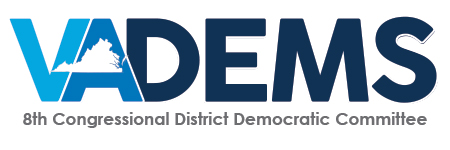U.S. Representatives Don Beyer (D-VA) and Pete Olson (R-TX) today introduced bipartisan legislation to strengthen federal laws that combat hate speech, threats, and attacks. As incidents of hate crimes continue to rise, the National Opposition to Hate, Assault, and Threats to Equality (NO HATE) Act would improve reporting and expand assistance and resources for victims of hate crimes.
“The rise in hate crimes in the United States has reached epidemic proportions in the last few years, and we need law enforcement to have every possible tool to stop it,” said Rep. Don Beyer. “By tracking and reporting incidents of hate crimes nationwide, we can know whether we are making progress towards their prevention. I thank my colleague, Rep. Olson, for his leadership; this legislation has a real chance to move forward.”
“Hate crimes have no place in our society, yet sadly they are on the rise,” said Rep. Pete Olson. “Representing one of the most diverse districts in America, I see firsthand the impact these hate crimes have on our communities. The NO HATE Act will serve as a vital tool in the fight against hate crimes by improving how law enforcement agencies track and report crimes. As co-chair of the Victims’ Rights Caucus, I’m pleased that this bill will also establish hotlines so victims of hate crimes can get the help and support they desperately need. I thank Rep. Beyer for his leadership and urge our colleagues to support this effort so we can ensure lasting and positive change.”
“ADL strongly supports the NO HATE Act, sponsored by Reps. Beyer and Olson, as one of our most important 116th Congress legislative priorities,” said Erika L. Moritsugu, Vice President, Government Relations, Advocacy & Community Engagement. “Data drives policy. Better hate crime data collection and training will assist in proper allocation of police resources and personnel, and improved data collection will spark expanded networking and communication with targeted communities, as well as more training for law enforcement personnel.”
“Too many people, including American Muslims, continue to fall victim to unspeakable acts of hate-fueled violence,” said Muslim Advocates Special Counsel for Anti-Muslim Bigotry Madihha Ahussain. “The introduction of this bipartisan, commonsense bill is a necessary step towards stopping this violence and offering hate crime victims and their families a path towards justice that many shockingly lack.”
“With the spike in bias-motivated violence and harassment across the country, particularly impacting transgender women of color, the need to address the crisis of anti-LGBTQ hate is more urgent than ever,” said David Stacy, HRC’s Government Affairs Director. “Without a clearer picture of the full scope of this problem, our policymakers, elected officials, and law enforcement are deprived of the necessary tools to fully combat this epidemic. This legislation is a necessary improve our data-reporting requirements and we applaud Rep. Beyer for working to fill this significant hole in our nation’s ability to address this often deadly violence.”
The NO HATE Act was reintroduced in the wake of high-profile anti-LGBTQ, Islamophobic, anti-Semitic, and other acts of violence directed at American communities. Despite the sharp increase in hate-fueled attacks across the country, reporting of such incidents by law enforcement continues to lag.
The NO HATE Act would help close gaps in existing hate crime reporting and strengthen the national response by:
Supporting the speedy implementation of the latest crime reporting standard, the National Incident-Based Reporting System (NIBRS), including training on reporting hate crimes through NIBRS. NIBRS allows law enforcement agencies to record and report detailed information about crimes, including hate crimes, to the FBI. The FBI has promoted NIBRS in every law enforcement agency, but a lack of resources has stalled full implementation.
Providing grants for the creation of state-run hate crime hotlines to record information about hate crimes and redirect victims and witnesses to law enforcement and local support services as appropriate, ensuring that hate crimes don’t go unreported and victims get the help they need.
Supporting law enforcement activities or programs that prevent, address, or respond to hate crimes by providing grants to states and local law enforcement to adopt policies, practices, and programs that more effectively identify, investigate, report, and respond to hate crimes.
Creating accountability by ensuring that law enforcement grantees report on their progress and requires the Attorney General to collect and analyze the information to better mitigate hate crimes.
Promoting understanding and healing by allowing for judges to require individuals convicted under the Hate Crimes Prevention Act of 2009 to undergo a period of supervised release, to include community service or education centered on the community targeted by the crime.
Companion legislation is being introduced by Senator Richard Blumenthal (D-CT). Text of the House bill is available here.
